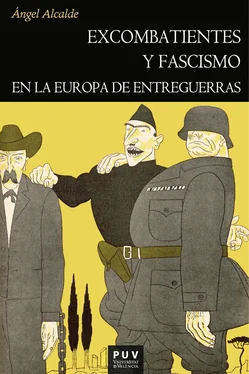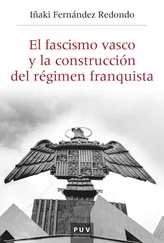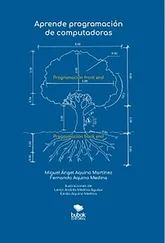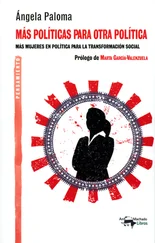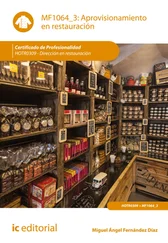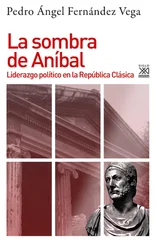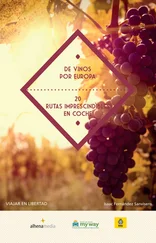40 Ibíd., pp. 289-291.
41 Giuseppe Prezzolini: «Mea culpa», Il Popolo d’Italia , 17 de enero de 1918.
42 Véase, por ejemplo, Il Popolo d’Italia , 25 de agosto de 1918; 29 de septiembre de 1918.
43 Il Popolo d’Italia , 14 de mayo de 1918. 44Ibíd., 1 de agosto de 1918.
45 Aldo Cingolani: «Le due Italie», La Voce dei Reduci. Giornale dei mutilati e invalidi di guerra , 23 de diciembre de 1917; Il Popolo d’Italia , 11 de marzo de 1918.
46 Mussolini: «Interessi dei soldati - Le vecchie classi», Il Popolo d’Italia , 5 de agosto de 1918.
47 Il Popolo d’Italia , 4 de noviembre de 1918.
48 Horne (dir.): «Démobilisations culturelles après la Grande Guerre».
49 Gerwarth y Horne (eds.): War in Peace.
50 Eduardo González Calleja y Fernando del Rey: La defensa armada contra la revolución , Madrid, CSIC, 1995.
51 Gerwarth y Horne: Vectors of Violence .
52 Bessel: Germany after the First World War .
53 Ulrich Kluge: Soldatenräte und revolution. Studien zur Militärpolitik in Deutschland 1918/19 , Gotinga, Vandenhoeck & Ruprecht, 1975; Scott Stephenson: The Final Battle. Soldiers of the Western Front and the German Revolution of 1918 , Cambridge, Cambridge University Press, 2009.
54 Richard Bessel: «Die Heimkehr der Soldaten. Das Bild der Frontsoldaten in der Öffentlichkeit der Weimarer Republik», en Gerhard Hirschfeld, Gerd Krumeich e Irina Renz (hg.): “Keiner fühlt sich hier mehr als Mensch…” Erlebnis und Wirkung des Ersten Weltkriegs , Frankfurt am Main, Fischer Taschenbuch, 1996, pp. 260-282; Mark Jones: «From “Skagerrak” to the “Organisation Consul”: War Culture and the Imperial German Navy, 1914-1922», en James E. Kitchen, Alisa Miller y Laura Rowe (eds.): Other Combatants, Other Fronts. Competing Histories of the First World War , Newcastle, Cambridge Scholars Publishing, 2011, pp. 249-274.
55 Klaus Theweleit: Männerphantasien , Frankfurt am Main, Verlag Roter Stern, 1977-1978.
56 Mark Jones: Founding Weimar: Violence and the German Revolution of 1918-1919 , Cambridge University Press, 2016.
57 Heinrich Hannover y Elisabeth Hannover-Drück (eds.): Der Mord an Rosa Luxemburg und Karl Liebknecht. Dokumentation eines politischen Verbrechens , Gotinga, Lamuv, 1989.
58 Avanti! (Milán), 16 y 17 de enero de 1919; Rote Fahne (Berlín), 15 de enero de 1919.
59 Mussolini: «Liebknecht è stato fucilato», Il Popolo d’Italia , 17 de enero de 1919.
60 «Operai e soldati solidali con Ebert», Il Popolo d’Italia , 19 de enero de 1919.
61 Alcalde: «War Veterans and the Transnational Origins of Italian Fascism».
62 Waite: Vanguard of Nazism ; Nigel H. Jones: Hitler’s Heralds. The Story of the Freikorps, 1918-1923 , Londres, Murray, 1987; Gerwarth: «The Central European Counter-Revolution»; Dirk Schumann: Political Violence in the Weimar Republic 1918-1933. Fight for the Streets and Fear of Civil War , Oxford, Berghahn Books, 2009, pp. 3-53; Jones: Founding Weimar .
63 Berghahn: Der Stahlhelm , pp. 14-15.
64 «Vorschläge Kapps an Prinz Udo von Löwenstein-Wertheim-Freudenberg, eine von den Grossgrundbesitzern gebildete Bürgerkriegstruppe zu schaffen. O. O., Februar 1919», en Erwin Könnemann y Gerhard Schulze (eds.): Der Kapp-Lüttwitz-Ludendorff-Putsch. Dokumente , Múnich, Olzog Verlag, 2002, p. 2.
65 James M. Diehl: Paramilitary Politics in Weimar Germany , Bloomington, Indiana University Press, 1977; Elliot: «The Kriegervereine and the Weimar Republic».
66 Dunker: Der Reichsbund jüdischer Frontsoldaten ; Ziemann, Contested Commemorations .
67 Ziemann: War Experiences in Rural Germany , p. 240.
68 Whalen: Bitter Wounds ; Seipp: The Ordeal of Peace .
69 Barth: Dolchstosslegenden .
70 «Information des Reichs- und Staatskommissars für Überwachung der öffentlichen Ordnung über Ansehensschwund der Reichsregierung» (Berlín, 8 March 1920), en Könnemann and Schulze (eds.): Der Kapp-Lüttwitz-Ludendorff-Putsch , p. 122.
71 Adolf Hitler: Sämtliche Aufzeichnungen 1905-1924 , Stuttgart, Deutsche Verlag-Anstalt, 1980, p. 91.
72 Thomas Weber: Hitler’s First War. Adolf Hitler, the Men of the List Regiment, and the First World War , Oxford, Oxford University Press, 2010, pp. 227-287; Othmar Plöckinger: Unter Soldaten und Agitatoren. Hitlers prägende Jahre im deutschen Militär 1918-1920 , Paderborn, Ferdinand Schöningh, 2013.
73 Brendan Simms: «Against a “world of enemies”: the impact of the First World War on the development of Hitler’s ideology», International Affairs 90, 2, 2014, pp. 317-336.
74 Johannes Erger: Der Kapp-Lüttwitz-Putsch. Ein Beitrag zur deutschen Innenpolitik 1919/20 , Düsseldorf, Droste Verlag, 1967.
75 Vossische Zeitung (Berlín), 18 de abril de 1920.
76 Adam R. Seipp: «“Scapegoats for a Lost War”: Demobilisation, the Kapp Putsch, and the Politics of the Streets in Munich, 1919-1920», War & Society 25, 1, mayo de 2006, pp. 35-54.
77 Reichsbund. Organ des Reichsbundes der Kriegsbeschädigten, Kriegsteilnehmer und Kriegshinterbliebenen (Berlín), 3 de abril de 1920.
78 Cohen: The War Come Home .
79 Gabriele Krüger: Die Brigade Ehrhardt , Hamburg, Leibniz-Verlag, 1971.
80 Prost: Les Anciens Combattants ; Robert Soucy: «France: Veterans Politics Between the Wars», en Ward (ed.): The War Generation , pp. 59-103.
81 Nicolas Beaupré: Écrire en guerre, écrire la guerre, France, Allemagne 1914-1920, París, CNRS, 2006; Jean Relinger: Henri Barbusse. Écrivain combattant , París, PUF, 1994; Henri Barbusse: Paroles d’un combattant. Articles et Discours (1917-1920) , París, 1920; Le Populaire (París), 8 de enero de 1919.
82 Avanti! , 15 de enero de 1919.
83 Charles Maurras: La part du combattant , París, 1917; Georges Valois: La réforme économique & sociale , París, 1918, pp. 54-55.
84 L’Action française , 19 de enero de 1919.
85 Informe al Président du Conseil des Ministres (París, 11 de marzo de 1919), e informe sobre la Fédération ouvrière des mutilés des Bouches-du-Rhône (Marseille, 25 de agosto de 1919), AN, F7/13243, «Associations de Mutilés et Victimes de la guerre», «Notes générales sur les dites associations».
86 Prost: Les anciens combattants. 87Millington: From Victory to Vichy .
88 Desmond Morton y Glenn Wright: Winning the Second Battle. Canadian Veterans and the Return to Civilian Life 1915-1930 , Toronto / Buffalo / Londres, University of Toronto Press, 1987.
89 William Pencak: For God & Country. The American Legion, 1919-1941 , Boston, Northeastern University Press, 1989.
90 Stephen R. Ward: «Great Britain: Land Fit for Heroes Lost», en Ward (ed.): The War Generation , pp. 10-37; Íd.: «The British Veterans’ ticket of 1918», Journal of British Studies 8, 1, 1968, pp. 155-169; Wootton: The Politics of Influence , pp. 203-210; Lawrence: «Forging a Peaceable Kingdom»; Niall Barr: The Lion and the Poppy. British Veterans, Politics, and Society, 1921-1939 , Londres, Praeger, 2005.
91 Silvia Correia: «The veterans’ movement and First World War memory in Portugal (1918-33): between the Republic and Dictatorship», European Review of history. Revue européenne d’histoire 19, 2012, pp. 531-551.
Читать дальше
